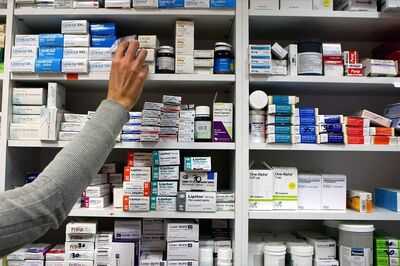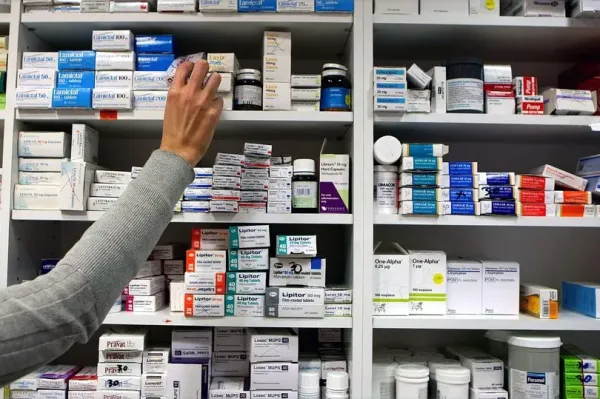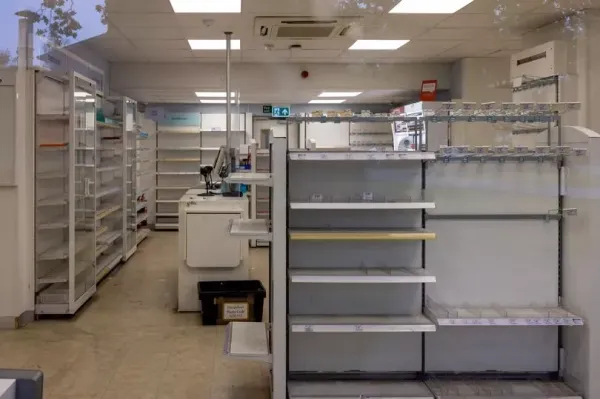
Seven million people have seen their local pharmacy close in recent years according to new analysis.
Analysis by the National Pharmacy Association (NPA) found one in seven of the population of England have seen their local chemist shut since 2017. It says cuts to pharmacy funding have resulted in elderly people and those in more isolated areas struggling to access vital medicines.
The is campaigning to save family chemists and stop the closures which are piling pressure on overstretched GPs.
READ MORE:

The NPA, which represents independent community pharmacies, has balloted for work-to-rule “collective action”, slashing opening hours to contractual minimums, if a better NHS pay deal cannot be negotiated.
Nick Kaye, NPA chair, said: “These are shocking figures which show that millions of patients have lost access to pharmacies who provide vital medication and care on their doorsteps. It is particularly concerning to see rural areas continuing to lose pharmacy time, which will force vulnerable isolated patients to travel further for the care they need.”
The NPA analysis of NHS data found 1,250 pharmacies have shut since 2017. Given that pharmacies each serve an average of 5,600 people, it calculates that as many as seven million people have seen their local pharmacy close. The majority of these closures have come in the last three years. Pharmacies that remain are also reducing their opening hours to cut costs.

Pharmacies in England were open for 551,000 hours a week in 2024, down from 620,000 at the same time in 2022, a reduction of around 7 million hours in the last two years. Cambridgeshire, Wiltshire, Kent and Devon have been particularly impacted. Kent saw 109,000 hours of pharmacy time lost in the last two years, Wiltshire lost 41,000 hours, Cambridgeshire 46,000 and Devon 49,000 hours.
Nick Kaye said: "When pharmacies close, it means people have to travel further for care and the pharmacies that remain have to work harder to meet demand. When they are forced to cut hours to make ends meet it means people don’t have such flexibility to get advice or pick up medicines.”
The NPA says pharmacies have seen their funding cut by 40% in the last decade. Around 90% of an average pharmacy’s work is funded via the NHS, including the cost of supplying medication as well as providing vaccination services
Some 99.7% of pharmacies who voted in the NPA's ballot said they would be prepared to take collective action for the first time in their history if their funding situation did not improve. This includes cutting opening hours to contractual minimums, a move which could result in around one million hours of pharmacy time being lost.
Nick Kaye added: “We’re relieved to hear that talks have finally begun for the long overdue pharmacy settlement but unless urgent and sustained increases in pharmacy funding are delivered imminently, this situation will only worsen and patients will face more and more difficulties getting the care they need and pharmacies will have no choice but to cut their services further to make ends meet.”
A spokeswoman for the Department of Health and Social Care said: “Over 80% of the population are able to reach a pharmacy within a 20 minute walk, and there are twice as many pharmacies in deprived areas. Despite this, we know that community pharmacy has been neglected for years, but will have a vital role to play as we shift the focus of the NHS out of and into the community through our 10 Year Health Plan.
“We will work with the sector, making better use of the skills of pharmacists and pharmacy technicians, to build a service fit for the future and we are currently consulting with Community Pharmacy England regarding funding for this year and next.”